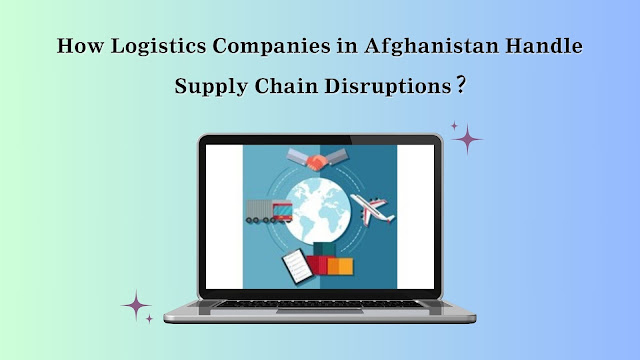How Businesses Can Choose the Right Logistics Companies in Kabul?
Choosing the right logistics partner is a critical decision for any business operating in Kabul. Efficient logistics not only ensures timely delivery of goods but also enhances customer satisfaction and reduces operational costs. With the growing number of service providers, identifying the best option among the available Logistics Companies in Kabul can be challenging. Here are key factors businesses should consider to make an informed choice.
1. Evaluate Experience and Expertise:
Experience matters when selecting logistics services. Established Logistics
Companies in Kabul often have a proven track record handling various
types of cargo, including fragile, perishable, and bulk goods. Businesses
should look for companies that understand local regulations, customs processes,
and the unique challenges of transporting goods in and around Kabul. Companies
with extensive experience are better equipped to manage unforeseen challenges
efficiently.
2. Range of Services Offered:
Different businesses have different logistics requirements. Some may need
warehousing, inventory management, and last-mile delivery, while others may
require customs clearance or cross-border transportation. Choosing a logistics
company that offers a wide range of services ensures that all your needs can be
handled under one roof. Many top Logistics Companies in Kabul provide
tailored solutions that align with the specific demands of businesses.
3. Technology and Tracking Systems:
Modern logistics relies heavily on technology. Businesses should prioritize
logistics providers that use advanced tracking systems, automated inventory
management, and real-time shipment updates. These features improve transparency
and allow businesses to monitor their shipments from dispatch to delivery.
Reliable Logistics Companies in Kabul invest in technology to enhance
operational efficiency and provide accurate information to clients.
4. Reputation and Customer Reviews:
A company’s reputation is a strong indicator of its reliability. Research
customer reviews, testimonials, and case studies to understand how well a
logistics provider handles challenges, manages deadlines, and communicates with
clients. Recommendations from other businesses in Kabul can be particularly
valuable when choosing among logistics companies.
5. Cost vs. Value:
While cost is an important consideration, it should not be the sole deciding
factor. The cheapest option may not always provide the best service. Compare
quotes from multiple providers and consider the value offered in terms of
reliability, service range, and technology integration. A slightly higher
investment in a trusted logistics provider can save time, reduce risk, and
improve overall efficiency.
6. Compliance and Safety Standards:
Businesses should ensure that the logistics provider complies with all legal
and safety regulations. Proper licensing, insurance coverage, and adherence to
local transportation laws protect both the business and its goods. Top
logistics companies follow stringent safety protocols to minimize risks during
transit.
7. Customer Support and Communication:
Effective communication is essential in logistics. Choose a company that offers
responsive customer support, providing timely updates and addressing concerns
proactively. A logistics partner that maintains open communication channels
reduces confusion and ensures smooth operations.
Conclusion:
Selecting the right logistics provider can significantly impact a business’s
operational success in Kabul. By carefully evaluating experience, service
offerings, technology, reputation, cost, compliance, and customer support,
businesses can identify reliable Logistics Companies in Kabul that meet
their specific needs. Making an informed choice ensures timely deliveries,
secure handling of goods, and a strong foundation for long-term growth.




Comments
Post a Comment